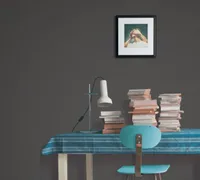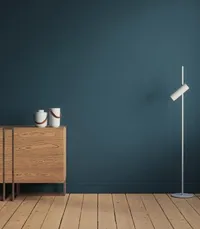Does a dark accent wall make a room look bigger? The little-known paint trick that can transform small spaces in an hour
Experts explain how a dark accent wall can make a room look bigger and the things you need to know to make this optical illusion work

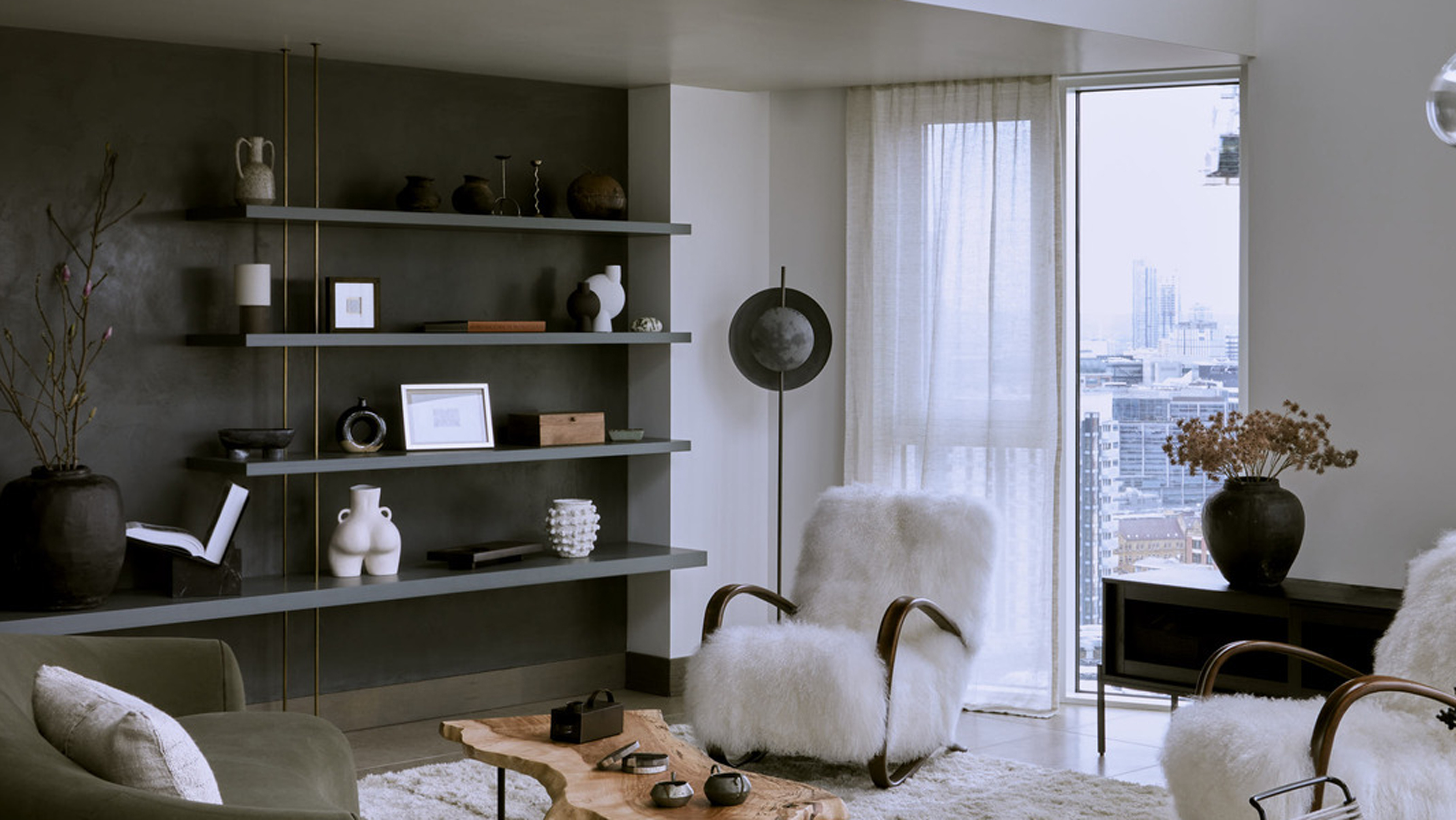
The Livingetc newsletters are your inside source for what’s shaping interiors now - and what’s next. Discover trend forecasts, smart style ideas, and curated shopping inspiration that brings design to life. Subscribe today and stay ahead of the curve.
You are now subscribed
Your newsletter sign-up was successful
A dark accent wall can really pack a punch, adding a bit of drama to an otherwise lackluster interior and bringing a feeling of glamor and sophistication to a space. But a mere lick of dark paint also holds the power to creating depth in the room, as well as a sense of size and space.
'Making a room look bigger is a common concern among designers and inhabitants of a space,' says interior designer Georgios Makridis of do:gma. 'To make an existing room appear bigger is a challenge that is usually achieved by the use of reflective items, such as mirrors, openings, windows where applicable, but accent walls painted in a tone much darker than the rest of the room also works to make a room feel bigger,’ he says. We speak to the paint experts to find out exactly how this simple paint idea can make your room feel bigger and create a lasting impact.

Oonagh is an experienced homes editor and writer. For this story, she's spoken to brands and designers to find out just how to use dark paint to create the illusion of space and size in a small room.
How can a dark accent wall make a room look bigger?
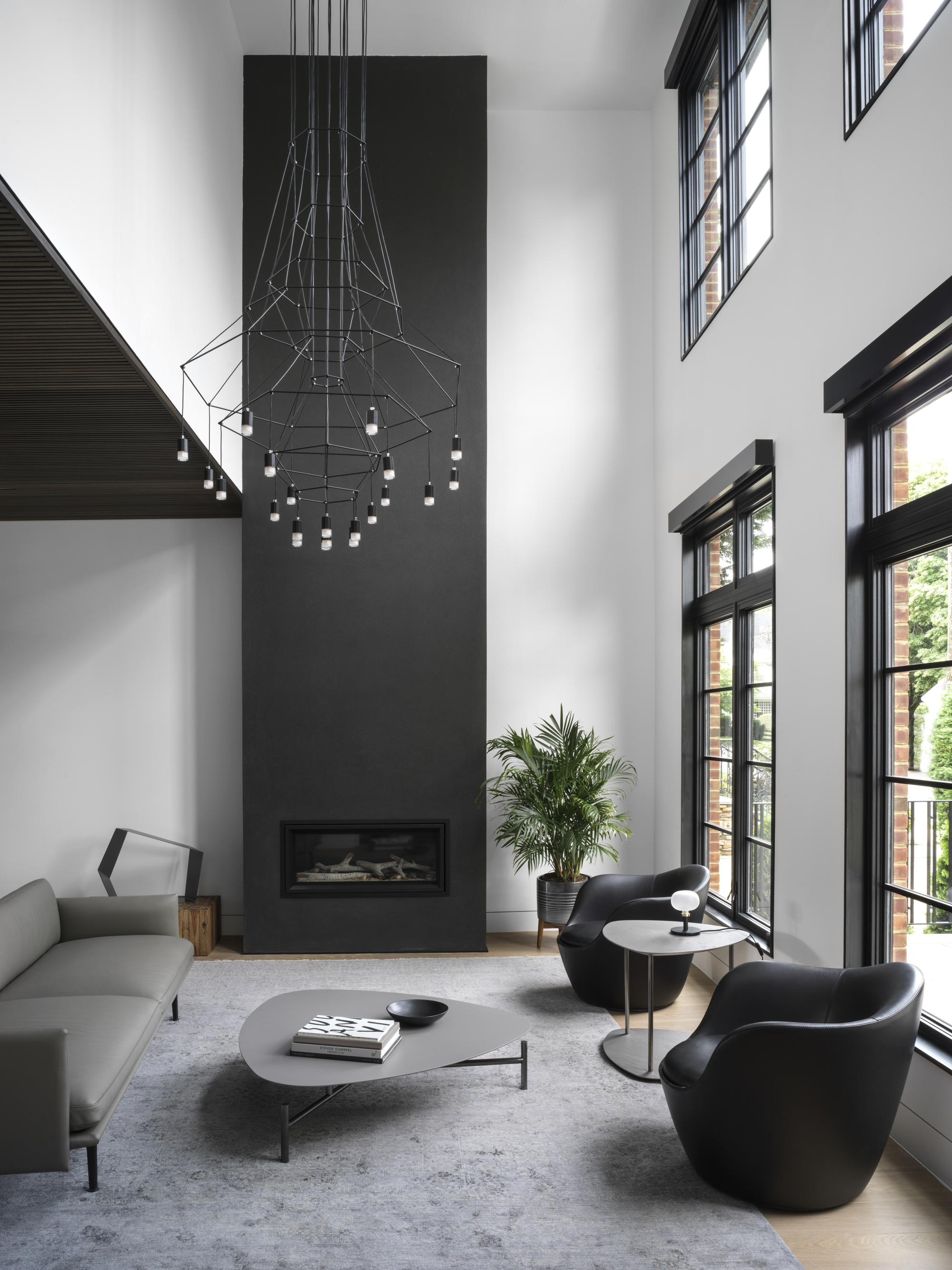
So how can an accent wall help a room feel bigger? It's actually all down to how the eye perceives color and light. Dark colors recede from the viewer, so the accent wall visually enlarges the space and creates contrast which makes a room seem brighter.
'We often think that light walls automatically make a space look bigger, but that isn't always the case,' says Kathryn Findlay of Studio Findlay. Instead, she says, darker colors can make a wall recede. 'A dark accent wall can add contrast and dimension, while visually enlarging the space, and going dark in a small space can give your eye a much-needed place to land or highlight a focal point.'
In this example from OAD Interiors, contrast was used as a visual aid to make the room seem larger. 'In this example of a living room accent wall, we wanted to emphasize the height of the space so we chose to have the fireplace in black to provide contrast and a wow factor,' says Melissa Anderson of Brooklyn-based OAD Interiors.
Recreate this look with Pitch black - a pure dark black paint that is uncomplicated in all lights, and perfect for adding that striking accent wall or helping create contrast
How to create an effective accent wall
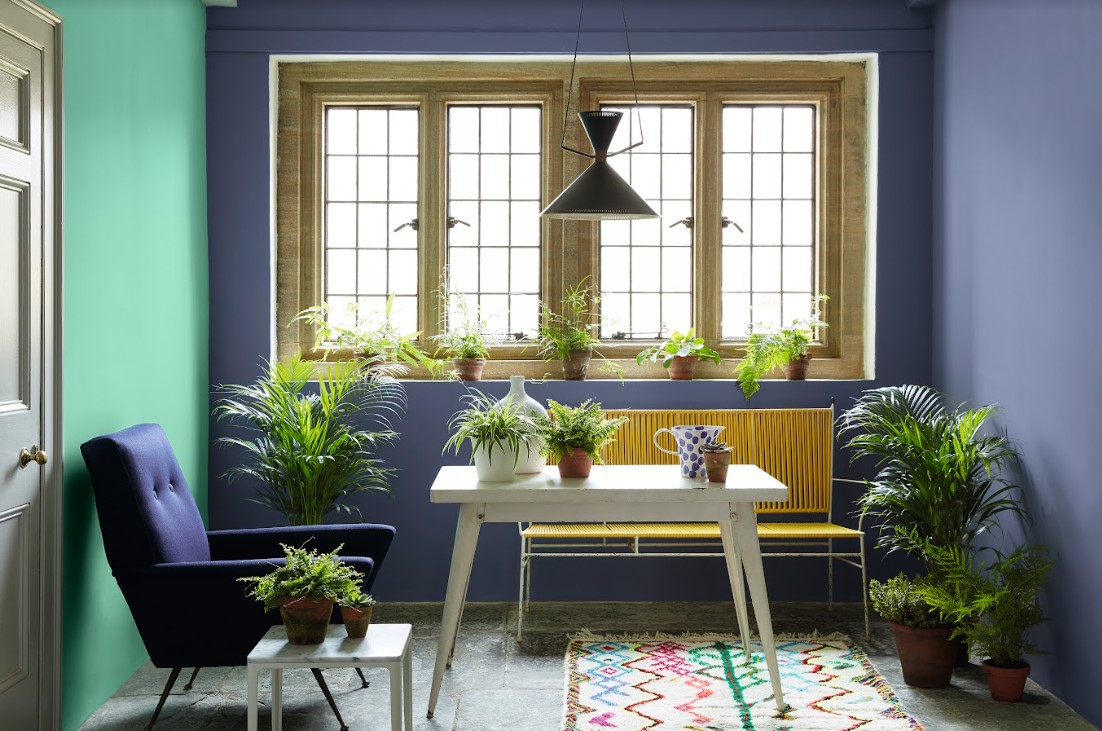
It's not as easy as it sounds though, and whether your dark accent wall will really work or not depends on first and foremost which wall you've painted. Using a contrasting color on an accent wall will draw the eye, whilst a lighter tone when paired with a deeper color will appear closer,' says Ruth Mottershead, creative director of Little Greene.
Beware that paint holds the power to merely elongate a room, rather than make it feel bigger overall. 'Using a lighter shade on the end wall, furthest away from you as you enter the space, alongside darker walls either side create a sense of depth and work to elongate the room' says Ruth.
The Livingetc newsletters are your inside source for what’s shaping interiors now - and what’s next. Discover trend forecasts, smart style ideas, and curated shopping inspiration that brings design to life. Subscribe today and stay ahead of the curve.
For Paola Zamudio, founder of npz studio+, whether this optical illusion can prove effective all comes down to how your room is lit. 'It depends on the lighting,' she says. 'If you have natural lighting, it can create a cozy feeling. If you have artificial lighting, it can make a space feel confined.' Think carefully about whether you have big windows to work in your favor, or whether you have recessed spotlights that might make the space feel far too small. 'An accent wall can be bold and elevate the look of your space, but it takes the right natural lighting to make it work.'
When it comes to what rooms work for a dark accent wall, think about those tight spaces that need help. A small bedroom or small living room could really benefit from this simple design trick, but maybe this isn't a hack that works for a long room like a corridor or small entryway. As a dark color is receding, this might just make the space look longer, instead of airier and brighter.
What colors work for a dark accent wall?
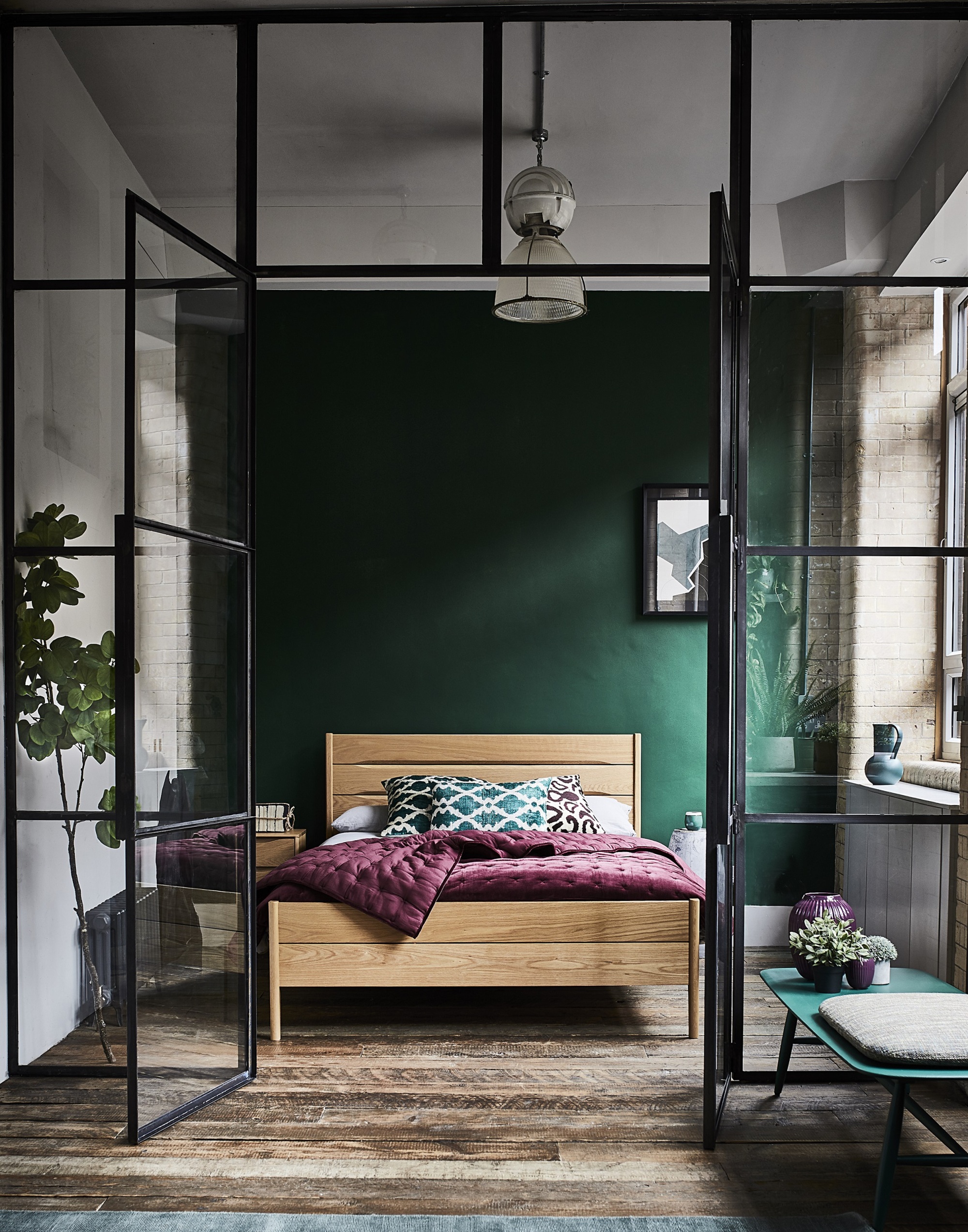
When brainstorming accent wall ideas, black and white is your obvious color combo that brings high levels of contrast. 'A black and white color combination never goes out of style,' says Julia, 'and instead of making a room appear smaller, it can offer a sophisticated, worldly look, especially when contrasted with white.'
Aside from black on white, you are looking for any combination that creates a high level of contrast. Pick dark shades that have a bit of color. 'I love dark green as a feature wall in a room with a lot of natural light,' says color and paint expert, Annie Sloan. A dark purple, brown, burgundy or navy blue can also work against a soft white or cream to help trick the eye into making the space feel bigger.
'Just make sure you reflect it across the rest of the room with a complimentary color on the walls and ceiling,' says Tash Bradley of Lick. So think about how you are pairing these colors and look at what colors sit opposite them on the color wheel. Think dark forest green - a color that goes with pink in a very light hue, or deep plum-like purple with a subtle cream that has yellow undertones. Playing with contrast and the color wheel in this way will help to create a striking impact.
Blue 07 is an inky and rich shade of dark blue with a tinge of green. The matt finish means the overall look is smooth and luxurious, great for an accent wall.
What are the other benefits of a dark accent wall?
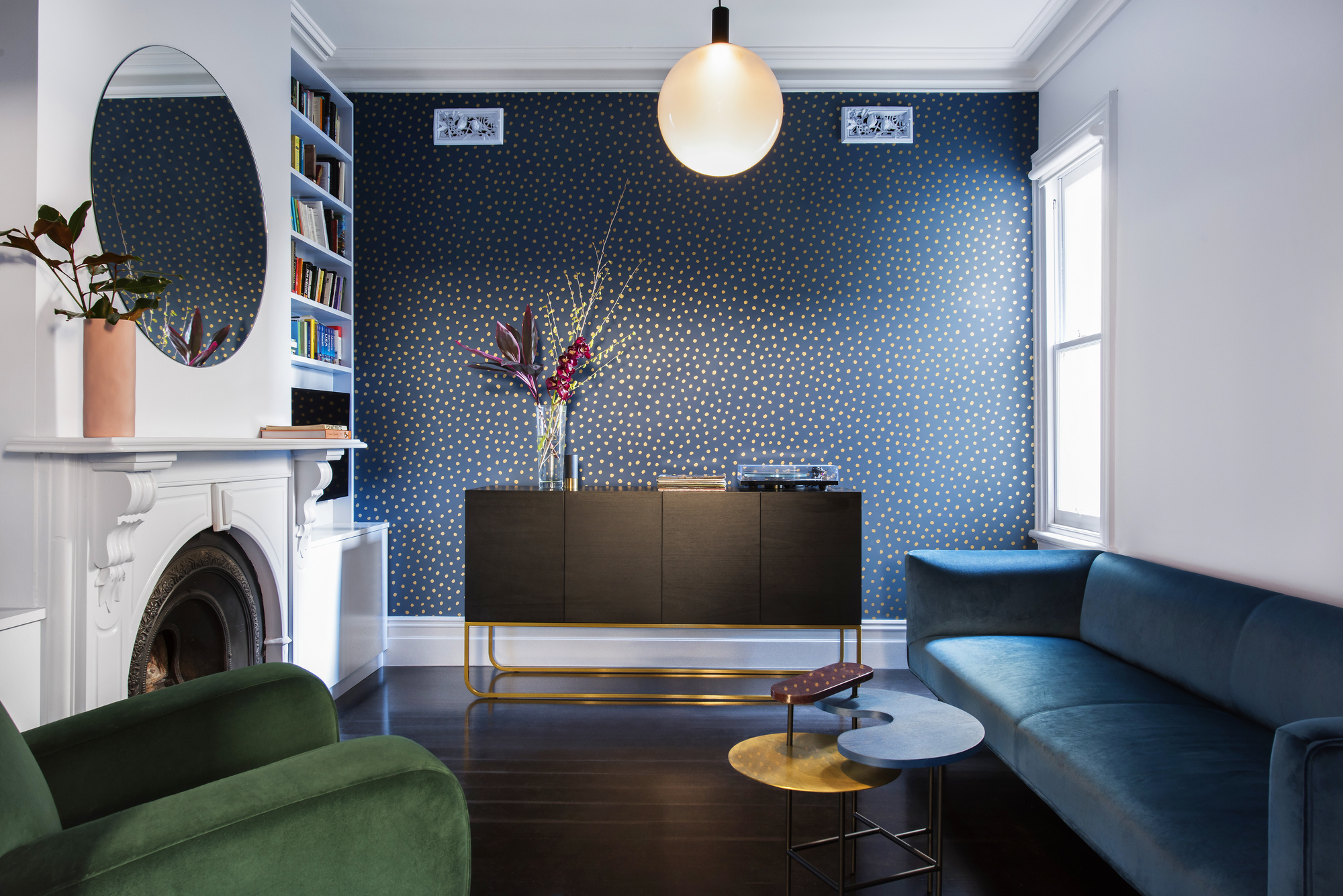
There are plenty of other merits to a dark accent wall as well as creating the illusion of depth and scale and a dramatic centerpiece. 'Bolder hues are also a fantastic tool for zoning an area to create an entirely different mood in one area of an open plan space,' adds Ruth Mottershead of Little Greene. If you are considering how to divide up an open plan space, dark paint can be your best friend to help you create visual borders. A kitchen space might nicely separate the area from the dining room, for example.
Dark accent walls can hide televisions and other pieces of furniture you might not wish to be on display. 'If you'd rather not have your television be the focal point of your room, use a dark accent or painted wall to disguise it,' says Julia Dempster. 'Not only does this wall add a subtle depth to your living space, but it provides a distraction-free backdrop for watching television.'
Go reflective for bigger impact
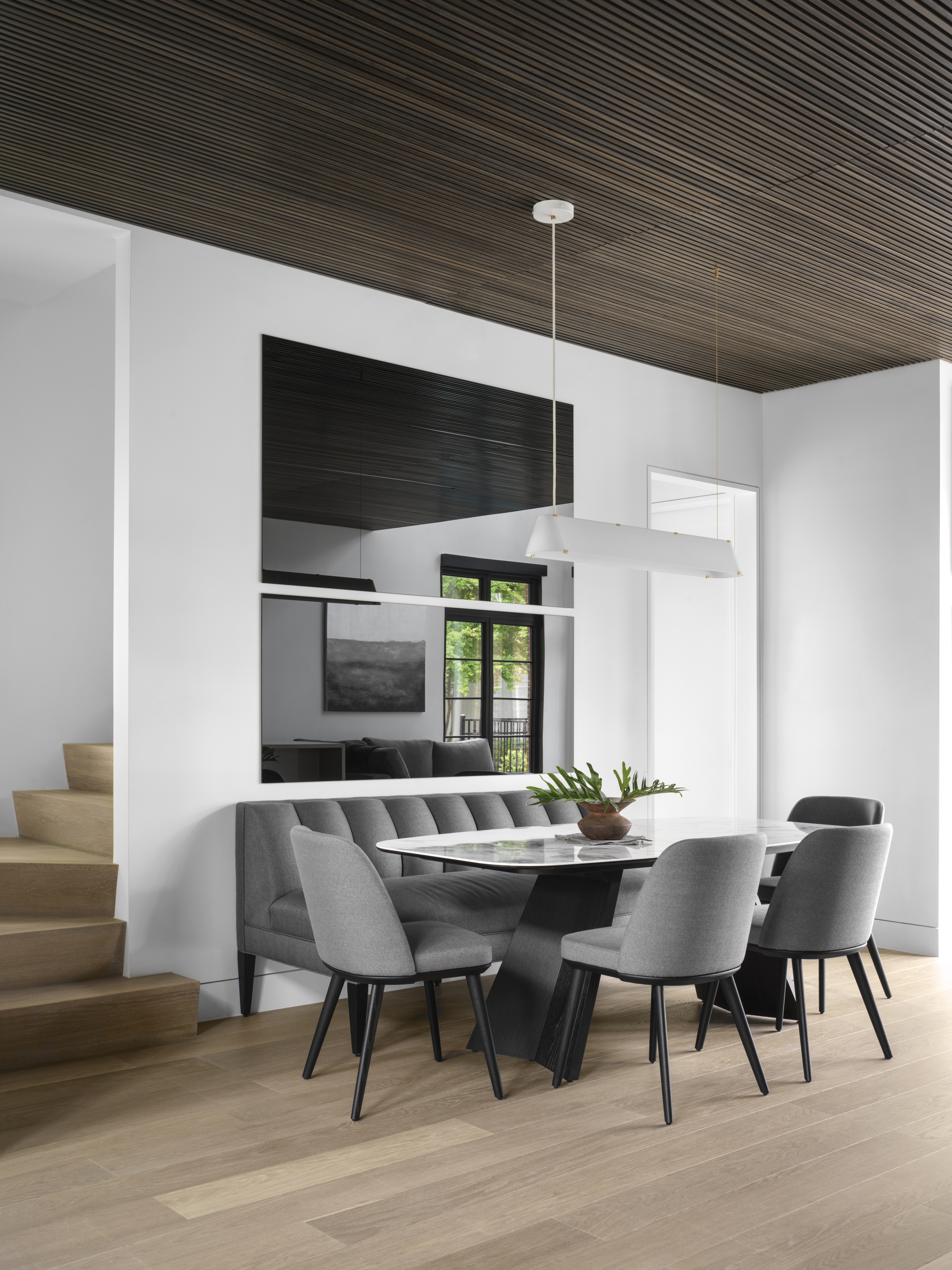
Another top trick is to get clever with reflection in the space. In this example by OAD Interiors, the designers have combined the dark accent wall technique with mirror to really ensure the dining room appears and feels larger.
'We wanted to create an artwork that would ground the area and define it in this open concept space,' explains Melissa. 'The black helped achieve this while the reflective quality kept the space feeling open and large.' Aside from mirror ideas, other reflective surfaces and materials - like brass, gold and a high shine paint on the floor can really help the reflection in the room.
When it comes to paint finishes, this can make all the difference, too. 'Textured finishes with slight sheens work well with lots of natural light as you can use deep colours and it still bounces light around,' interior designer Annie Harrison, founder of Fare Inc.
What wall should be the accent wall?
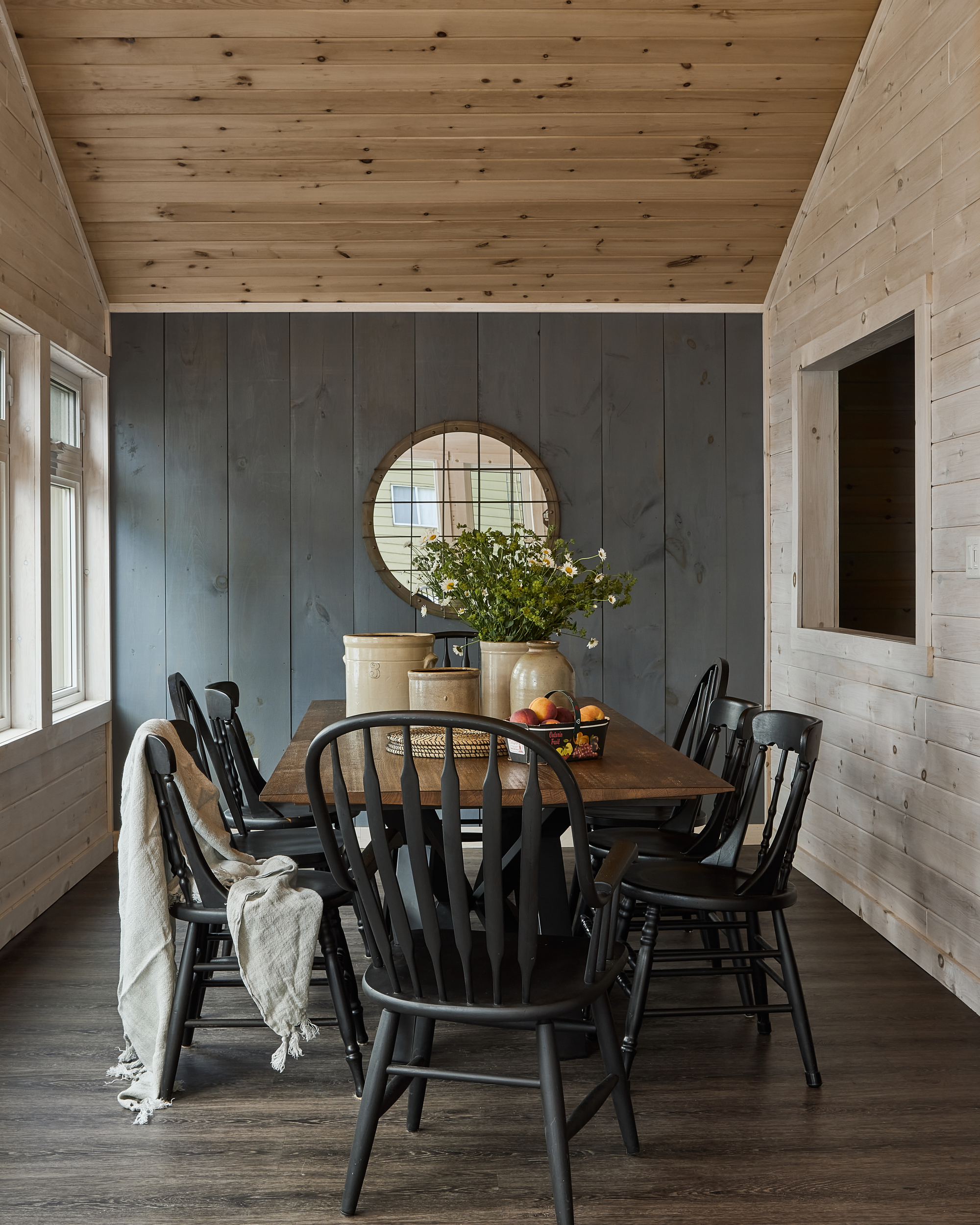
When figuring out which wall should be the accent wall, it's all about where your eye gravitates to in the room. 'Sometimes, details of what is in the room already can help you decide what is the focal point,' says Denise Davies of D2 Interieurs. 'For example, if there are built-ins already in the space or do you want to make the fireplace wall your accent wall.' It could be the wall behind the headboard in your bedroom, or it could be the wall behind the sofa in a living room, or a pretty fireplace, figuring out what the most prominent wall is is your first step.
You also need to decide whether you are trying to emphasize a piece of furniture, and ultimately, consider the natural lighting of the room and what kind of light your home gets. If you get light shining on the wall in the evening or the mornings, you might need to consider how that impacts your shade of choice. You also need to bear in mind if this light works to make the room bigger or not.

Former content editor at Livingetc.com, Oonagh is an expert at spotting the interior trends that are making waves in the design world. She has written a mix of everything from home tours to news, long-form features to design idea pieces, as well as having frequently been featured in the monthly print magazine. She is the go-to for design advice in the home. Previously, she worked on a London property title, producing long-read interiors features, style pages and conducting interviews with a range of famous faces from the UK interiors scene, from Kit Kemp to Robert Kime. In doing so, she has developed a keen interest in London's historical architecture and the city's distinct tastemakers paving the way in the world of interiors.
